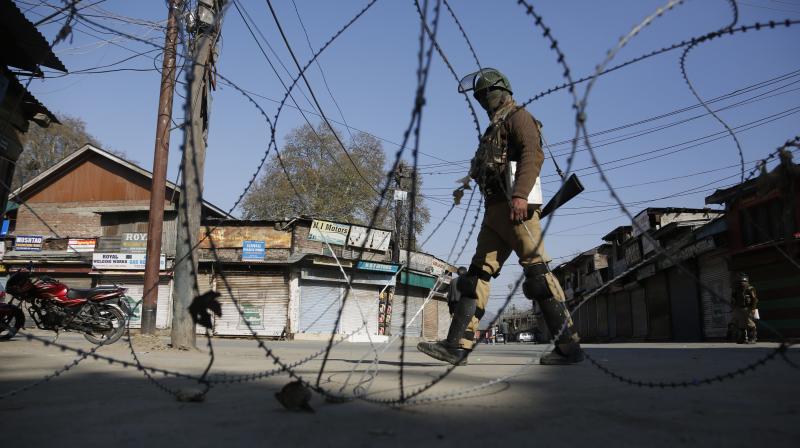Govt's hard stance on J&K is nothing new

One of the things that the Narendra Modi government is wrongly accused of is turning India into an illiberal nation. I say that the government is wrongly accused of it because the facts show that the Indian government has never been particularly liberal, even under the Congress. Civil society groups and non-governmental organisations that have been working on some issues for decades will vouch for what I am saying. Issues like rights of adivasis, Kashmiris and the people of the Northeast have not come into focus recently. They have been with us for decades and it is wrong to assume that it is this government, or this Prime Minister, that is the root cause of the problems. The exploitation of adivasi land, which is the richest in terms of mineral wealth, began under Jawaharlal Nehru and even before him. Some of the nastiest and some of the most heavy-handed actions against adivasis came under the Congress government of Manmohan Singh.
All adivasis are punished for the alleged crimes against a few and the presence of tens of thousands of paramilitary personnel in the Indian heartland is proof of that. In October, 2015, a national daily carried the headline: “Anti-Maoist operations: Chhattisgarh, IAF to carry out retaliation attacks from air”. The story was that the Indian Air Force would use its Russian-made MI-17 helicopters to attack its own citizens. The reports said that the air force had carried out “successful exercises” and that “three IAF helicopters flew over Bijapur and practised strafing”.
Those who are familiar with India will know that there are no parts of it that are totally deserted, so it would be interesting to see what happened to that area where our Air Force was practising air strikes. The point is that this level of violence is not new in that area and the Indian State has suppressed its agitating citizens with machine guns from British times and before. It is not only wrong to assume it began with Narendra Modi but it is also misleading because it ignores the real issue. Before Mr Modi and unfortunately after him as well, this is how the Indian State has behaved and will behave with its citizens. I was having a conversation with P. Chidambaram a few months ago and he was saying that India should lift AFSPA from Kashmir.
He is one of our most intelligent politicians, and I have great respect for him. However, I wish he had expressed the same sentiment when he was the home minister because it would have been much more credible. Those who are upset by the current government’s hard position against agitating Kashmiris should know that it is exactly as hard as the position of previous governments. Only the rhetoric is a little different. The Congress also killed as many, and actually more, but it spoke softly. The BJP uses harsher words, that is the only real difference. The Indian State has always operated on priorities that are at variance from the needs and rights of its population. We accuse the British State of looting India and sending our resources to serving their own purposes. The example of the Bengal famine of 1943 because of the exploitative war policy is often cited. This was an unconscionable conduct in a part of the world where people were starving and illiterate. However, I wonder how different this is from the way it is under our democracy.
Last year, we spent Rs 59,000 crore on 36 fighter jets for the Indian Air Force. This year, we are spending Rs 50,000 crore on 57 fighter jets for the Indian Navy. This is happening in a nation whose Union health budget is Rs 33,000 crore a year (it was actually cut under Arun Jaitley). Ten thousand Indian children die every week of malnourishment but we cannot afford to spend more money on them and would rather buy more toys for our armed forces. Is this not as immoral an act as that under the British Raj? Can anyone make the case that we absolutely need these new planes? No, and the point is that there is not even a debate about this in our country and there has never been one. All governments have followed similar pursuits and though one may disagree with this Prime Minister on many things, one must accept that he is only continuing what others before him did.

